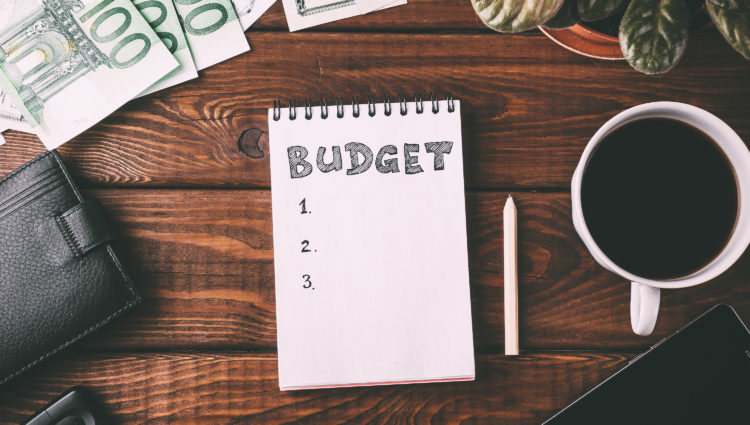
Finance is a loaded word, and managing your money is hard. Can you guess why? It’s because money isn’t just about money. Managing finances is psychological, spending is emotional, and budgeting can feel constricting, therefore provoking issues like anxiety and depression. Because a myriad of millennials have not received an adequate financial education, many of us are flailing when it comes to money management, even well into our 20s and 30s.
It’s possible, though, to break the cycle of fiscal illiteracy. You can do it now; before you’re 25, even 30. It’s never too late, but the earlier you start, the more it will pay off (literally) in the long-term.
These basic financial lessons are ones you should know by now. If you’re not yet well-versed in these fundamentals, it’s time to get more acquainted with your moolah.
1. Record your spending
The first time I wrote a check, I was 21, living in my first apartment and had to pay rent. It’s elementary, but you should be able to accurately write a check, balance your account, or use a budgeting app or spreadsheet to keep track of your cash.
2. Set up an emergency fund
The first financial milestone you should aim for is establishing an emergency fund. Save six months’ worth of expenses, an amount that includes rent, necessary expenses like groceries, debt, and bills. To stockpile this amount, automate 20% of your income into savings monthly.
3. Plan ahead for holiday spending
December rolls around, and we suddenly expect our finances to withstand the countless gifts we’re charging, all without preparing for that increase in spending. Sound familiar? Join a Holiday Club through your bank, or put away cash in an envelope on a weekly basis. If you save $21 per week for 48 weeks, you’ll have $1,000 by December 1.
4. Only charge what you can pay off
The idea of charging only what you can afford to pay off in full isn’t a new sentiment, but it’s one worth reiterating. When I got my first credit card, I only used it for gas and groceries. It primed me for paying off bigger purchases responsibly.
5. Understand the benefits of your reward program
Different cards have different rules about cash back, rewards, and annual percentage rates (APR). Understanding card options will help you get the most out of your card. If you dine out often, it may be in your best interest to use a card that rewards cash back specifically on dining.
6. Be selective with your credit cards
After getting your first card, it may feel like everyone wants you. Don’t give into the temptation of store cards, as they often have higher interest rates, and your credit could take a hit should you miss a payment or max out.
7. Check your accounts regularly
You might be tempted to ignore your bank app altogether. There were times when I wouldn’t check my account because I was terrified of the balance, and I would rather live in ignorance (AKA bliss). Checking your accounts regularly familiarizes you with your spending habits.
8. Don’t spend your tax refund
You may hear “tax refund” and subconsciously translate it as “shopping spree.” But resist the urge and deposit your entire refund directly into savings, or put it toward your credit card or student loan debt.
9. Spring for insurance
Emergencies happen, and they happen when you least expect them to. If you’re caught in a sticky situation sans insurance, you could be fined, risk your driver’s license being suspended, or pay ridiculously high premiums for health care. Springing for health insurance, renter’s or homeowner’s insurance, and auto insurance are all necessary evils that will benefit you in the long run. You don’t have to worry about life insurance yet, unless you are married or have a child. In that case, life insurance is a long-term investment that protects those you leave behind.
10. Don’t ignore your retirement savings
It’s the easiest facet of finances to postpone, but start contributing to your 401(k) or personal retirement savings sooner rather than later. Take advantage of compound interest, especially if your company matches contributions.
11. Take control of your student loans
Americans owe $1.3 trillion in student debt, and the average Class of 2016 graduate has accumulated $37,172 in student loans. As long as you have a decent amount of savings put away (see #2), start aggressively paying off your loan, and pay more than the minimum payment if possible. If you begin missing payments, your credit could take a hit, you’ll be referred to a collection agency, and the financial institution you owe money to could contact your employer and garnish your paycheck. That means, take it out of your pay – yikes!
If you find yourself reading this and thinking, “I’m in good shape,” then good for you! If you’re feeling a little behind – don’t worry. It’s not too late to start taking ownership of your finances and improve the way you manage your money.
Originally published on April 6, 2017.